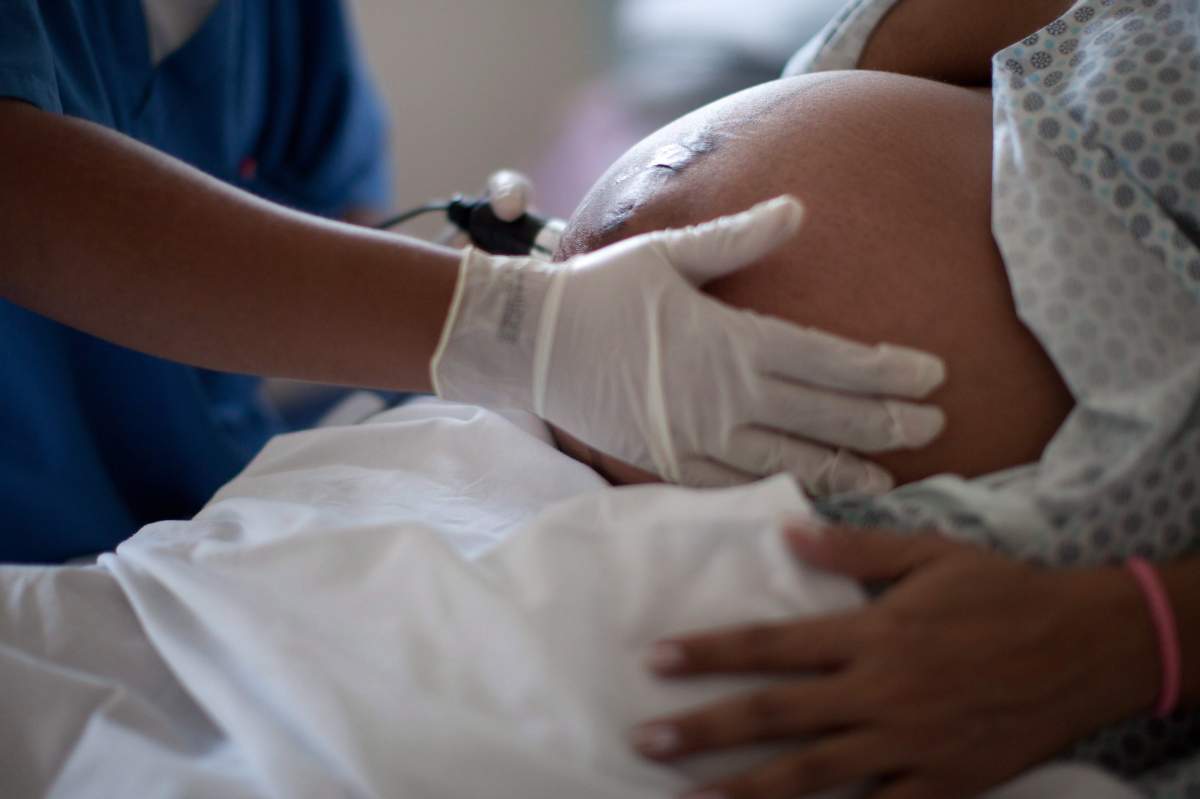The Quebec government took a stance on Monday, saying it will not interfere with Montreal’s Jewish General Hospital’s controversial decision to ban guests from delivery rooms due to COVID-19 concerns.

At the provincial government’s daily press briefing, Premier François Legault said he believes the decision made by the hospital was the right one.
“It’s fair and reasonable,” said the premier, given the number of COVID-19 cases at the Jewish General.
The hospital’s decision to ban all guests — including fathers, partners, immediate family members and doulas — from delivery rooms came Friday, after hospital workers in the maternity ward found out a woman’s partner lied about not having symptoms of the virus so that he could accompany her.
The hospital’s new policy equally bans all postpartum hospital visits.
Quebec’s health minister Danielle McCann said officials have no plans to ask the hospital to overturn its decision, nor do they plan on asking other hospitals to follow suit with a similar measure.
McCann agreed with the premier. Due to fact that the hospital has the most infections in the province, she said she understands the strict precaution taken. She added that she understands this is a very difficult situation for everyone involved.
She said the public needs to take all precautions possible to protect patients and staff at the hospital.
Since being announced, the policy has received swift reaction from patients and care providers who say the prospect of delivering a baby alone is traumatic for some women, and having a companion present during childbirth is part of the World Health Organization (WHO)’s COVID-19 guidelines.
The WHO states that all women, including those with confirmed or suspected COVID-19 infections, should have the right to a “safe and positive childbirth experience” and mental health care. This includes having a companion of choice present during delivery.
But Nathalie Pambrun, president of the Canadian Association of Midwives, said people need to remember these are far from ordinary times.
Dr. Jennifer Blake, CEO of the Society of Obstetricians and Gynaecologists of Canada (SOGC), said hospitals will not be taking this decision lightly.

Get weekly health news
Pambrun and Blake both pointed out that shortage of personal protective equipment (PPE) complicates the issue.
Plus, additional people in the delivery room not only increases the health risk to mom and baby, but to medical staff as well, particularly when many infected people show no symptoms of COVID-19.
Studies have however shown that less medical interventions such as C-sections occur when women have a partner present. Studies also show that the childbirth experience is a positive bonding moment between the baby and second parent.
And while it’s far from the ideal solution, Blake pointed out that hospitals have the technology to connect moms with their partners during labour.
Many expecting parents who are set to deliver at the Jewish General have expressed their shock and heartbreak at the news, and a petition asking that the hospital revoke its decision has widely circulated online.
Lauren Gazzard, a first-time expecting mother set to deliver there in June, said she never imagined that she would have to go through childbirth alone.
“The one thing I had to anchor me was that my husband would be there,” she said.
Michael Kerr, Gazzard’s husband and father of the baby, said he is finding it difficult to process the idea that he will not get to be there for his wife, nor for the first moments of his child’s life.
Both Quebec’s health minister and premier, however, emphasized that this policy has only been implemented at the one hospital in the province, and women can make the choice to deliver at another hospital if they feel strongly about having their partner with them during the birth.
Officials at the Jewish General did not respond for a request for comment.
The number of confirmed COVID-19 cases in Quebec has reached 8,580 on Monday and 121 people in the province have so far died of the disease.
— With files from The Canadian Press











Comments
Want to discuss? Please read our Commenting Policy first.